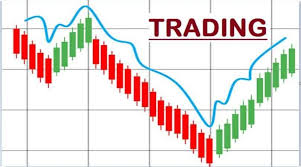
Your Guide to the Best Trading App
In today’s fast-paced world, investing in stocks, cryptocurrencies, and other assets has become more accessible than ever. With just a few taps on your smartphone, you can buy, sell, and manage your investments from anywhere. This has given rise to numerous trading platforms catering to various user needs. If you’re looking for the best trading app, you’re in the right place. In this article, we’ll explore essential features, how to choose the best trading platform for you, and some of the top contenders in the market.
Understanding the Basics of Trading Apps
Before diving into the specifics, let’s clarify what a trading app is. A trading app allows users to trade financial instruments such as stocks, ETFs, currencies, and commodities via mobile or desktop platforms. These apps provide real-time data, charting tools, and sometimes even educational resources to help traders make informed decisions. Given the increase in mobile trading, having a reliable app at your fingertips can significantly enhance your trading experience.
Key Features to Look for in a Trading App
When looking for the best trading app, consider the following features:
- User-Friendly Interface: An intuitive design makes navigation simpler, especially for beginners.
- Security Measures: Look for apps with robust security protocols, including two-factor authentication and data encryption.
- Wide Range of Assets: Opt for apps that allow you to trade various assets such as stocks, cryptocurrencies, options, and futures.
- Low Fees: Compare trading fees and commissions, as higher costs can eat into your profits.
- Real-Time Data and Charting Tools: Access to real-time market data and advanced charting tools can be a game-changer for traders.
- Research and Educational Resources: Many successful traders begin with a solid foundation of knowledge. Look for apps that offer tutorials, market analysis, and trading resources.
- Customer Support: Reliable customer support is crucial. Ensure that the app provides support via multiple channels, including chat, email, or phone.

How to Choose the Best Trading App for You
Selecting a trading app depends on your trading style, experience level, and investment goals. Here are some steps to help you choose wisely:
- Assess Your Trading Style: Determine whether you are a casual trader, day trader, or long-term investor. This choice affects which features and trading types you should prioritize.
- Research and Read Reviews: Check reviews from other users to gauge the reliability and functionality of different apps.
- Test Out Demo Accounts: Many trading apps offer demo accounts that allow you to practice trading without risking real money. Use these to get a feel for the app’s functionality.
- Evaluate the Educational Resources: If you’re new to trading, look for apps that provide ample tutorials and guidance.
- Check Regulatory Compliance: Ensure the app adheres to regulations set by relevant financial authorities to protect your assets.
- Compare Costs and Fees: Look beyond just the commission structure. Evaluate all associated costs, including withdrawal fees, inactivity fees, and margin rates.
Top Contenders for the Best Trading App
Now let’s overview some of the leading trading apps available today:
1. Robinhood
Robinhood has gained popularity for its commission-free trading model and user-friendly interface. It offers stocks, ETFs, and options trading, making it a favorite among beginner investors. However, while it lacks some advanced features, such as in-depth research tools, it remains a solid choice for newcomers.

2. TD Ameritrade
Known for its robust trading platform, TD Ameritrade offers a wide range of investment options, advanced trading tools, and excellent customer service. Its ThinkOrSwim platform is particularly popular among active traders due to its comprehensive analytics and research capabilities.
3. eToro
eToro is unique in that it offers social trading features, allowing users to follow and copy the trades of successful traders. It is especially popular in the cryptocurrency space and offers a variety of financial instruments, making it an attractive option for those looking to diversify their portfolios.
4. Webull
Webull provides commission-free trading and advanced features such as in-depth technical analysis tools. Its user-friendly mobile app complements a more experienced trader’s needs. Furthermore, its research tools and educational resources appeal to those looking to enhance their trading skills.
5. Fidelity
Fidelity is known for its comprehensive services, including retirement savings options alongside trading. It offers a wide variety of investments, advanced trading tools, and top-notch research reports. With its dedication to customer satisfaction, Fidelity remains a viable option for both novice and experienced traders.
Conclusion
Choosing the best trading app for your investment needs is crucial in achieving your financial goals. By considering the essential features, evaluating your trading style, and testing out different apps, you can find the platform that best suits your needs. Each of the apps discussed has its strengths; therefore, pick one that aligns with your requirements and helps you trade effectively. Happy trading!